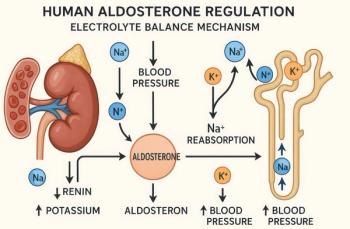
FDA Okays First Direct Renin Inhibitor for Hypertension
ROCKVILLE, Md. -- The FDA said today it has approved aliskiren (Tektuma), the first oral direct renin inhibitor for treatment of hypertension.
ROCKVILLE, Md., March 6 -- The FDA said today it has approved aliskiren (Tektuma), the first oral direct renin inhibitor for treatment of hypertension.
Unlike angiotensin converting enzyme inhibitors that attack the middle of the renin-angiotensin cascade, or angiotensin receptor blockers (ARBs) that target the bottom of the cascade, aliskiren interferes at the top of the renin-angiotensin cascade -- before any disruption of blood pressure regulation.
In clinical trials reported at the American Society of Hypertension meeting in 2006, the drug was also touted for its ability to smooth out the daily peaks and troughs of blood pressure. Variations in blood pressure during the day are thought to increase the risk of end organ damage.
In clinical trials, the drug demonstrated efficacy across all demographic groups, but African Americans reported smaller reductions in blood pressure.
As with other blood pressure medications, the drug was most effective when used in combination with a thiazide diuretic.
The FDA said aliskiren was evaluated for safety in more than 6,460 patients, including 1,740 who were treated longer than six months, and more than 1,250 for over one year.
Side effects were usually mild and brief. The most common side effect experienced by patients taking aliskerin was diarrhea, which was reported by about 2% of patients randomized to it.
Rarely patients experienced allergic reactions characterized by swelling of the face, lips, or tongue and difficulty breathing.
Aliskiren and other drugs that act directly on the renin-angiotensin system should not be used during pregnancy, said the FDA, because they can cause injury and even death to the developing fetus.
Aliskiren was developed by Novartis.
Newsletter
Enhance your clinical practice with the Patient Care newsletter, offering the latest evidence-based guidelines, diagnostic insights, and treatment strategies for primary care physicians.

































































































































